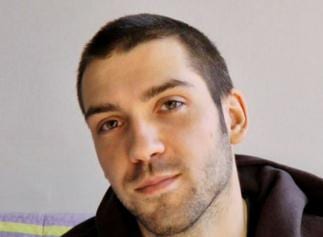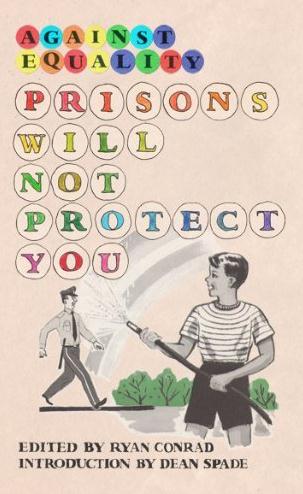
Ryan Conrad says Canada's attempt to emulate the US prison system is wrongheaded and "murderous."
For years, the conventional wisdom has been that hate-crimes legislation represents a human-rights advance for members of the queer communities. These laws will help to lock up more bigots, the thinking goes, and will focus more attention on homophobic and transphobic violence when it occurs or increases.
But in the book Prisons Will Not Protect You, a group of writers, activists and academics dissect the arguments for hate-crimes legislation, suggesting such laws only feed into a prison-industrial complex and ultimately do not reduce such crimes.
“With this anthology, we wanted to highlight how the prison system really hasn’t worked, both historically and presently, to our benefit,” says Ryan Conrad, the book’s editor. “Some of the essays describe hate-crime laws as a form of prison expansion that has no proven record of preventing or reducing anti-queer and anti-trans violence. The second half of the anthology teases out the ways in which the prison system itself is a site of anti-queer and anti-trans harm.”
Xtra chatted with Conrad about the book prior to its Toronto launch.
Xtra: Many activists who favour hate-crimes legislation have said that without it, crimes directed against specific minorities are not properly classified and recorded by police.
Ryan Conrad: In the United States, data collection regarding anti-queer and anti-trans violence has largely been legislated separately, beginning with the Hate Crime Statistics Act of 1990, from hate-crime laws regarding penalty enhancement, in this particular case the Matthew Shepard and James Byrd, Jr Hate Crimes Prevention Act. Regardless, this data collection depends on being able to prove what is essentially a thought crime, which is a difficult thing to do legally (hence the low prosecution and conviction rate for so-called hate crimes). Not to mention that anti-queer and anti-trans violence at the hands of the state (cops, prison guards, immigration officers, et cetera) will never be recorded or redressed. For us, it’s not simply about incarcerating the right bodies, but about trying to work towards a society with models of accountability that don’t rely on incarceration.
In the US, the country with the largest prison incarceration rate in the world, many of your arguments resonate very strongly. But we don’t have quite the same issues in Canada. Does this book have applications here?
With the current Conservative government and their ramming through of Bill C-10 [the Safe Streets and Communities Act] just last year, Canadians are going to have to deal with many of the problems associated with the criminal punishment system in the United States. Canada also leads the world in criminal convictions for HIV nondisclosure, an issue that will disproportionately affect queers. The prison industrial complex on both sides of the border is murderous and must be challenged by queer and trans activists.
You bring in some Canadian activists who specifically address the criminalization of HIV.
Both of the chapters challenging the criminalization of HIV nondisclosure and sex offender registers were written by Canadian-based activists primarily working out of Montreal. Folks involved with those two pieces work with groups like PolitiQ – Queer Solidares and the Prisoner Correspondence Project. These folks are demanding that we rethink the models of criminal punishment currently being offered as solutions to social problems and that we work towards better models of collective accountability and self-determination. There are a lot of really great folks in both the United States and Canada working against the prison industrial complex with the intention of building a better world in which all of us can not only survive, but thrive.
What was your biggest revelation as you put together this anthology?
I am really in awe of all the queer and trans folks engaged in challenging the prison industrial complex. There are so many folks in North America and elsewhere doing really interesting and important work around this issue, and I’m excited that this small anthology helps highlight some of that work.

 Why you can trust Xtra
Why you can trust Xtra


